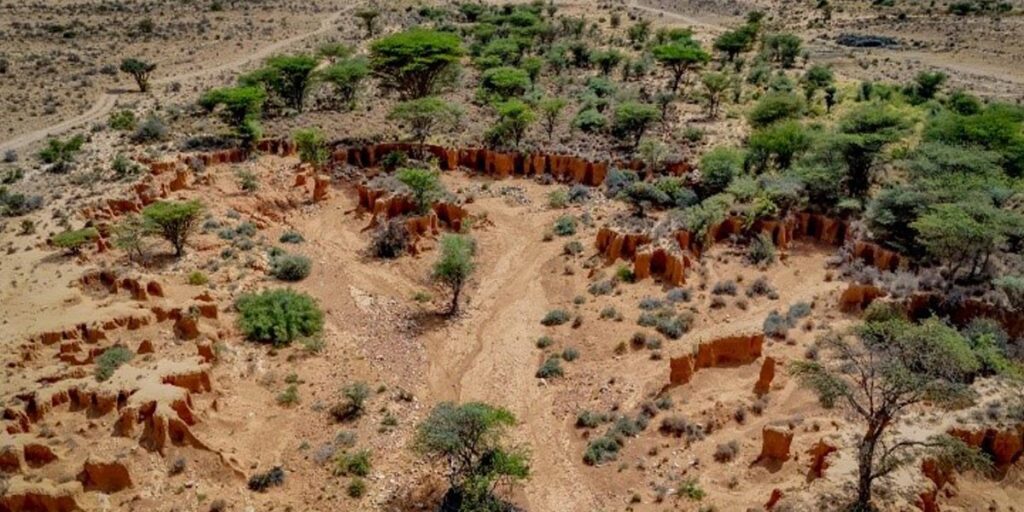As the Deyr rainy season begins, it breathes hope into Puntland’s pastoralists, livestock, and wildlife after enduring the hardships of the Xagaa dry season. However, forecasts predict below-average rainfall, signaling continued water scarcity and inadequate pasture, which are critical for a region where over 60% of the population depends on livestock.
Puntland’s arid climate, with annual rainfall averaging only 250mm, makes pastoralism the backbone of livelihoods. Yet, climate change has disrupted the traditional seasonal patterns, with rain becoming shorter, less frequent, and harder to predict. Challenges such as water scarcity, overgrazing, biodiversity loss, land degradation, and the erosion of traditional rangeland knowledge have further strained the fragile ecosystem. The traditional practice of transhumance, moving livestock in search of water and pasture, has become increasingly unsustainable, while the loss of elderly people skilled in predicting rainfall has left communities vulnerable to the uncertainties of a changing climate.
Despite these challenges, the rainy season offers a window of opportunity to address the degradation of rangelands and improve pastoral livelihoods. Local communities have a vital role to play in protecting their rangelands, establishing seasonal reserves, and maintaining traditional practices that prevent overuse and conflict over scarce resources. At the same time, the Puntland Ministry of Environment, Range and Climate Change (MoERCC) and its partners must support these efforts by enforcing policies, raising awareness, building capacity, and promoting research to adapt to evolving conditions.
Collaboration is essential. By uniting efforts across communities, government institutions, and partners, Puntland can design sustainable programs that leverage strengths, reduce duplication, and maximize impact. The time to act is now, to protect livelihoods, sustain ecosystems, and build resilience for the future.

